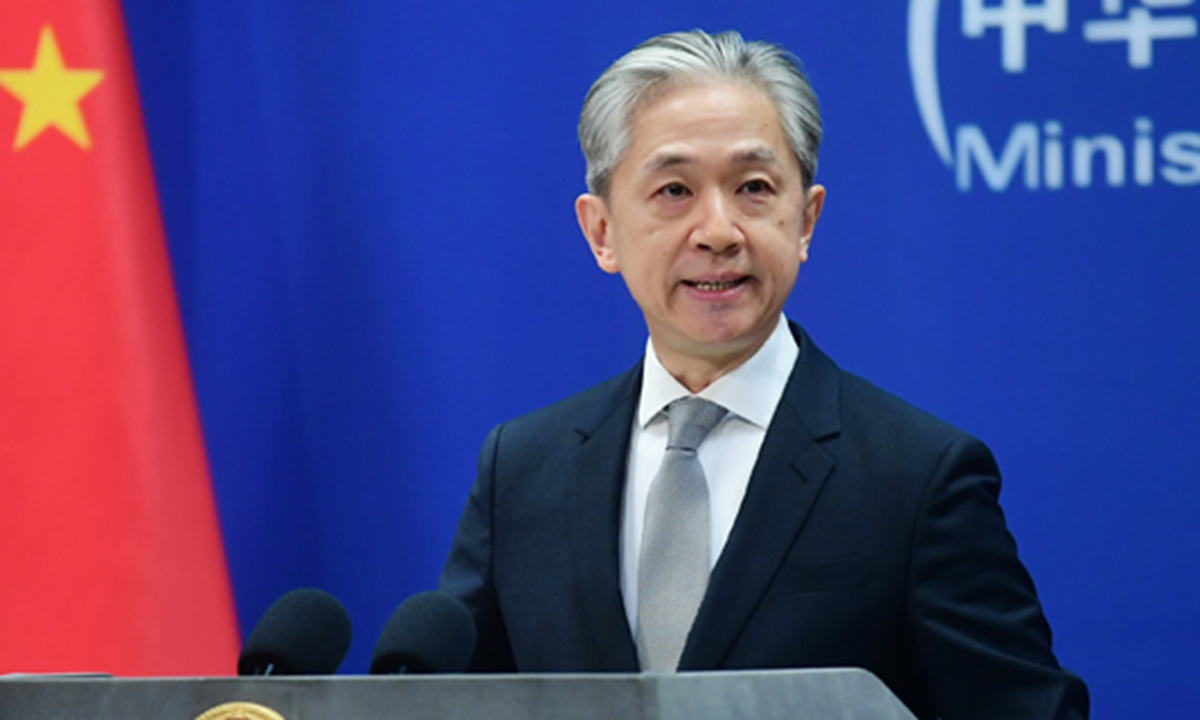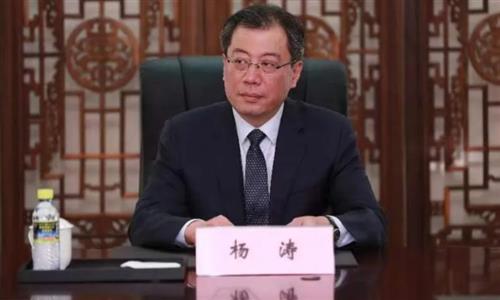China urges US, UK and Australia to stop AUKUS nuclear submarine deal: FM spokesperson

Chinese Foreign Ministry spokesperson Wang Wenbin Photo: mfa.gov.c
China will continue to utilize platforms such as the International Atomic Energy Agency (IAEA) and the Nuclear Non-Proliferation Treaty (NPT), review process to thoroughly discuss the political, legal, and technical issues related to the AUKUS nuclear submarine deal, a spokesperson from China's Ministry of Foreign Affairs said on Wednesday. Until the international community reaches a clear conclusion, the US, UK, and Australia should halt the advancement of the initiative, the spokesperson noted.
The remarks were made by Wang Wenbin, spokesperson for China's foreign ministry, when asked to comment on a workshop titled "AUKUS: A Case Study about the Development of IAEA Comprehensive Safeguards" organized by the Permanent Mission of China in Vienna recently.
On May 10th, the Permanent Mission of China in Vienna hosted a seminar on AUKUS. Representatives from nearly 50 countries' permanent missions in Vienna, the International Atomic Energy Agency (IAEA) Secretariat, and experts think tanks from both China and other countries attended the meeting, with over 100 participants in total, said Wang, noting that the participants engaged in lively discussions on the supervision and security of AUKUS, highlighting the widespread attention and concern of the international community on this issue.
The AUKUS nuclear submarine deal undermines efforts to maintain regional peace and security. US, UK and Australia are forming a trilateral security partnership, advancing cooperation on nuclear submarines and other cutting-edge military technologies, stimulating an arms race, undermining the international nuclear non-proliferation regime, stirring up blocs, and opposing and disrupting regional peace and stability, Wang said.
The spokesperson said China and other relevant countries in the region have repeatedly expressed serious concerns and strong opposition.
Wang stated that AUKUS also triggered widespread concern about nuclear proliferation internationally. It involves the transfer of nuclear propulsion technology and a large volume of weapons-grade highly enriched uranium, which the existing safeguards and supervision system of the IAEA cannot effectively implement.
There is a significant controversy in the international community over the interpretation and application of relevant safeguards and monitoring clauses. If the three countries insist on advancing cooperation on nuclear submarines, it will create a huge risk of nuclear proliferation and have far-reaching negative impacts on the resolution of nuclear hotspots in other regions, said Wang.
Wang said China has called on the international community to take seriously the impact of AUKUS on the authority and effectiveness of NPT, as well as the deal's negative effects on the institutional safeguards and oversight mechanisms. China will continue to utilize platforms such as the IAEA and the NPT review process to thoroughly discuss the political, legal, and technical issues related to the trilateral nuclear submarine cooperation. Until the international community reaches a clear conclusion, the US, UK, and Australia should halt the advancement of their nuclear submarine cooperation.
Global Times

